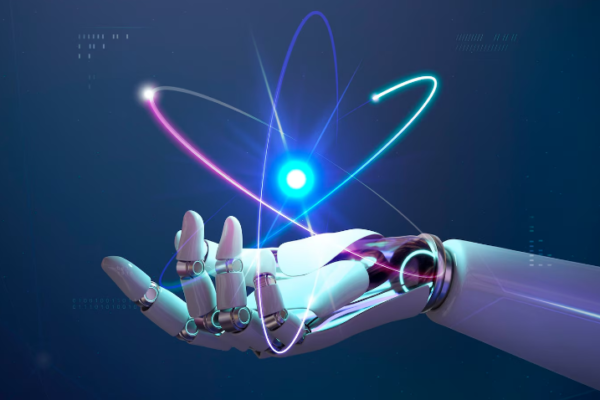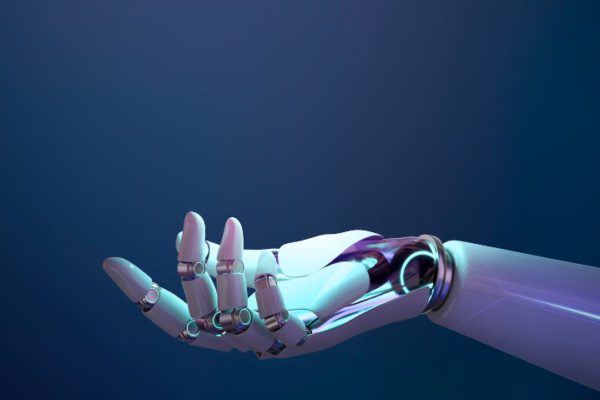Artificial Intelligence (AI) stands as one of the most transformative technologies of our time, revolutionizing industries and reshaping the way we interact with machines and data. Its journey from theoretical concepts to practical applications has been marked significant milestones, with each phase reflecting advancements in computing power, algorithmic innovation, and societal impact. To truly grasp the evolution of AI, one must delve into its past, assess its current capabilities, and speculate on its promising future.
The Past: Foundations of Artificial Intelligence
The roots of AI trace back to the mid-20th century when pioneers like Alan Turing and John McCarthy laid the groundwork for the field. Turing, in his seminal paper on computing machinery and intelligence (1950), proposed the famous Turing Test to determine a machine’s ability to exhibit intelligent behavior indistinguishable from that of a human. This conceptual leap set the stage for exploring the potential of machines to think and learn.
During the 1950s and 1960s, AI research was characterized ambitious goals and early successes. McCarthy, along with other researchers, coined the term “artificial intelligence” and introduced the concept of computer programs that could reason and solve problems. Early AI systems such as the Logic Theorist and the General Problem Solver demonstrated rudimentary forms of problem-solving and reasoning, laying a foundation for more sophisticated developments in the decades to come.
However, the initial enthusiasm for AI was tempered challenges in scaling algorithms and limitations in computing power. The 1970s and 1980s became known as the “AI winter” as funding and interest in the field waned due to unmet expectations and technical hurdles. Despite setbacks, this period saw progress in specialized AI applications like expert systems and natural language processing, which paved the way for the resurgence of AI in subsequent decades.
The Present: AI Resurgence and Practical Applications
The turn of the 21st century marked a resurgence of AI fueled advancements in machine learning, big data, and computational capabilities. Key breakthroughs, such as the development of neural networks and deep learning algorithms, enabled machines to learn from vast amounts of data and perform complex tasks with human-like proficiency. Companies like Google, Facebook, and Amazon invested heavily in AI research, leveraging it to improve search algorithms, personalize recommendations, and optimize logistics.
Today, AI is ubiquitous in everyday life, powering virtual assistants like Siri and Alexa, enhancing cybersecurity measures, and driving advancements in healthcare diagnostics. Natural language processing models such as GPT-3 have achieved remarkable feats in generating human-like text, while computer vision systems enable autonomous vehicles to perceive and navigate the world. AI’s impact spans across industries, from finance and retail to entertainment and education, streamlining operations and offering new avenues for innovation.
Ethical considerations surrounding AI have also gained prominence, prompting discussions on bias in algorithms, data privacy, and the future of work in an increasingly automated world. Striking a balance between innovation and responsibility remains a critical challenge as AI continues to evolve and integrate deeper into society.
The Future: Towards Intelligent Machines and Beyond
Looking ahead, the future of AI holds immense promise and raises profound questions about humanity’s relationship with technology. Continued advancements in AI research are expected to push the boundaries of what machines can achieve, potentially leading to breakthroughs in areas such as personalized medicine, climate modeling, and space exploration.
Research into explainable AI aims to enhance transparency and trust in AI systems, making their decision-making processes understandable to humans. Innovations in reinforcement learning could enable autonomous systems to learn and adapt in real-time environments, fostering safer and more efficient interactions between humans and machines.
Furthermore, the convergence of AI with other emerging technologies like quantum computing and biotechnology opens up new frontiers for innovation. Quantum AI promises to exponentially increase processing power, while AI-driven advancements in genomics could revolutionize personalized healthcare.
However, challenges such as ethical dilemmas, job displacement, and regulatory frameworks must be addressed to harness AI’s full potential responsibly. Collaborative efforts between policymakers, researchers, and industry leaders are crucial in shaping an AI future that is inclusive, ethical, and beneficial for society at large.
In conclusion, the evolution of artificial intelligence from its theoretical origins to its current applications represents a testament to human ingenuity and technological progress. As we stand on the cusp of a new era defined intelligent machines, understanding AI’s past achievements, current capabilities, and future trajectories is essential in navigating the opportunities and challenges that lie ahead. AI’s journey is not just a story of technological advancement but a reflection of our collective aspirations to unlock the potential of intelligent systems for the betterment of humanity.








